

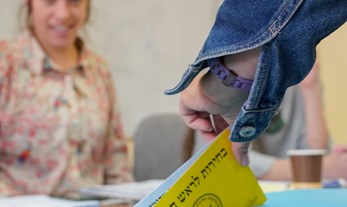
Local Government and Local Elections: Time to Move Away from Centralized Thinking
Written By: Prof. Gideon Rahat
Israel’s system of local elections has been in place since the 1970s - but is it optimal? Prof. Gideon Rahat proposes reform to enhance the compatibility of the system to the characteristics and needs of different localities.
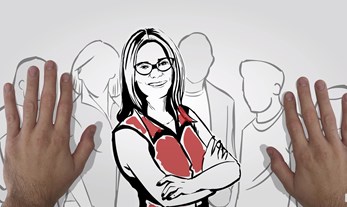
IDI Regulatory Roadmap for Investors
Daphna Aviram-Nitzan and her team at IDI set out 18 months ago to resolve some of the heavy bureaucratic and regulatory burden with which the business sector must contend when establishing new manufacturing plants and doing business in Israel. The result is the “Regulatory One-Stop-Shop for Investors”, which was adopted in August 2018 by the government to improve the ease of doing business in Israel.
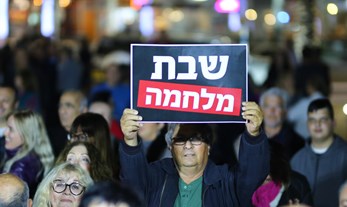
Faith and the City
Written By: Dr. Shuki Friedman
In an op-ed for the Jerusalem Post, Dr. Shuki Friedman, Head of IDI's Center for Religion, Nation and State, explains how local government plays a critical role in balancing religion and state in day-to-day life in Israel.

Israel Climbs Five Spots in the World Bank’s Ease of Doing Business Index
Israel improved by five spots over last year in the index of 190 countries. In first place is New Zealand, followed by Singapore, Denmark, Hong Kong, and South Korea. The Ease of Doing Business Index is an international indicator of how easy it is to do business in various countries.
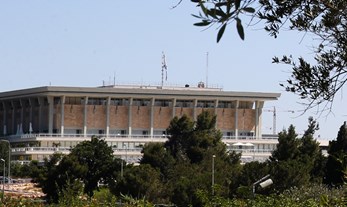
Israeli Democracy at 70
Written By: Adv. Alona Vinograd
Israel at 70 is still a thriving democracy, but current concerns are justified, says Alona Vinograd in an interview to Fathom.

The Municipal Elections 2018: Digital Resilience
Written By: Dr. Tehilla Shwartz Altshuler, Dr. Guy Lurie
The digital domain has developed into something of a wild west for election campaigning in recent years. While there are strict laws governing the press, radio, and television, there are almost no restrictions on online campaigning, such as on the forms of advertising permitted, the use of personal data, and advertising budgets. This lack of regulation has already been shown to potentially affect election results, and may lead to the misuse of information on residents, routinely collected by the municipality as part of its function by those in positions of power in local government.
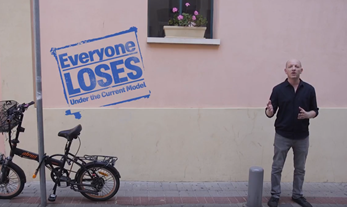
Reinventing the Start-Up Nation's Labor Laws
There is a glaring gap between the tremendous promise of Israel’s innovating workforce and the antiquated laws that constrain its productivity. In this video, IDI Senior Fellow Prof. Yotam Margalit proposes a series of changes to Israeli labor law, including new mechanisms for flexible working arrangements that will benefit both employers and employees.
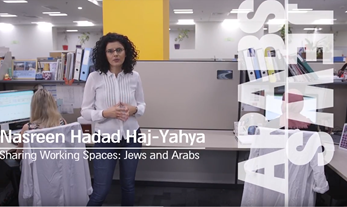
Sharing Working Spaces: Jews and Arabs
Nasreen Hadad Haj-Yahya’s research finds that shared work spaces in Israel benefit both Jews and Arabs alike. Moreover, working together reduces alienation, erodes stereotypes, and contributes to the Israeli economy.
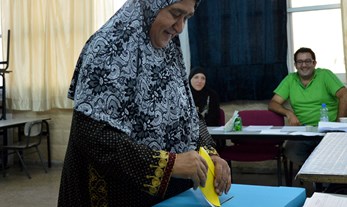
Why Local Elections Matter
Written By: Yohanan Plesner
"While Israeli national politics get most of the coverage, it is the local level that in many cases has the greatest impact on Israeli lives." Read Yohanan Plesner's op-ed on the upcoming municipal elections and why electoral reform is required, both on the local and national level.
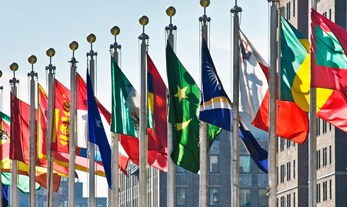
A Show of Global Solidarity – The UN and Human Rights
Written By: Prof. Yuval Shany
The United Nations, with all its many flaws, has an essential role to play in promoting the basic idea that any and all individuals must enjoy human rights.
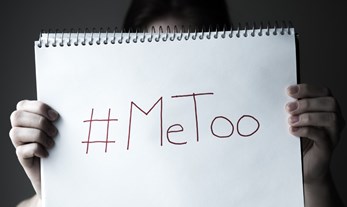
Is It a Very Scary Time for Young Men?
Written By: Prof. Tamar Hermann, Prof. Ephraim Yaar
The monthly Peace Index of the Israel Democracy Institute and Tel Aviv University finds that: 44% of Jewish and Arab Israelis agree with President Trump’s statement that “It’s a very scary time for young men” – the percentage among men who agreed was significantly higher than that among women.
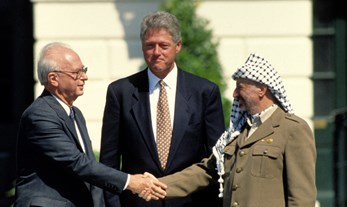
Two States for Two People? A Long Decline in Support
Written By: Dr. William Cubbison
For the past few decades, support and opposition to a two state solution has been a fault line dividing people and parties in Israel. Dr. William Cubbison presents an overview of the level of Jewish support in the 25 years since the signing of the Oslo Accords.
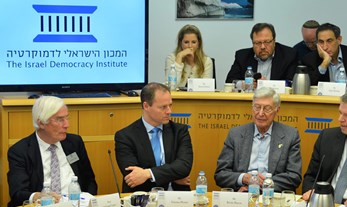
Strengthening Jewish Unity by Strengthening Israeli Democracy
Written By: Yohanan Plesner
As Israel enters its eighth decade, Yohanan Plesner, President of the Israel Democracy Institute, reflects on the delicate balance between the state’s two dominant characteristics – Jewish and democratic – which has never been more contested.
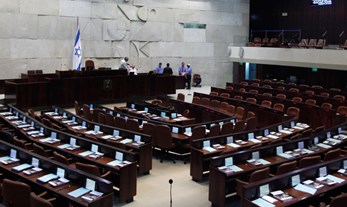
A Weak and Inefficient Knesset
Written By: Dr. Chen Friedberg
In a democracy, parliaments are supposed to not only pass laws but also engage in oversight; that is, to ensure that legislation is implemented and identify deficiencies in the government’s work.
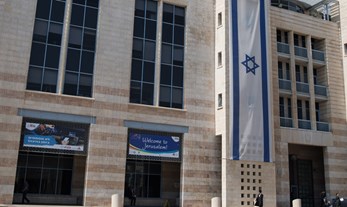
Is There a Connection Between Corruption and Term Limits in Local Government?
Written By: Prof. Ofer Kenig, Dr. Shahaf Zamir
Recent years have seen the emergence of dozens of corruption scandals involving local government in Israel. Subsequently there have been calls to set mayoral term limits to prevent graft and corruption. Dr. Ofer Kenig and Shahaf Zamir's dispel the idea that there is a connection between the length of a mayors term and levels of corruption.
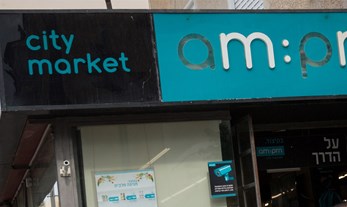
Shabbat in the City
Written By: Dr. Shuki Friedman, Adv. Gilad Wiener
A recent law stripped local authorities of the power to decide on allowing commercial activity on Shabbat and handed it over to the Minister of the Interior, a development which was met with public uproar. Would it not be better to leave these powers in the hands of the municipalities, which act according to the profile of their resident population? Dr. Shuki Friedman makes the case for leaving these decisions in the hands of the local authority.
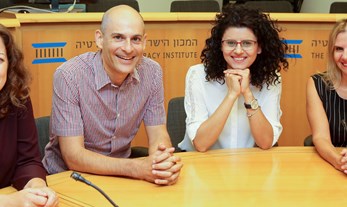
Meet the Next Generation of IDI Leaders
Written By: Rachel Cohen, Adv. Alona Vinograd, Dr. Nasreen Haddad Haj-Yahya, Daphna Aviram-Nitzan, Dr. Gilad Malach
Guaranteeing an independent Supreme Court. Integrating the Ultra-Orthodox into the IDF. Boosting participation of Arab women in the workforce. Improving the ease of doing business in Israel. These are some of the challenges facing IDI’s new cadre of program and center directors.
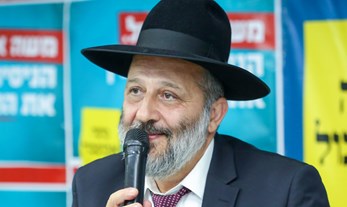
Ultra-Orthodox Parties in Municipalities in Israel
Written By: Dr. Gilad Malach
Tomorrow's elections will determine the local government in 251 cities, towns and municipalities. Of all the political parties represented at a national level in Israel, the ultra-Orthodox parties are the most successful in local government. What are the reasons behind this interesting trend? Read Dr. Gilad Malach's fascinating findings.
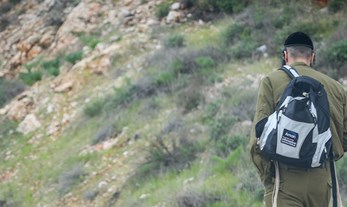
The “People’s Army”?
Written By: Dr. Asaf Malchi
This article presents the main milestones in the recurring attempts to put a satisfactory arrangement for the deferment of military service for yeshiva students in place. In doing so, it surfaces the changes that have occurred over time in the constitutional, legal, and public responses and attitudes on this issue.
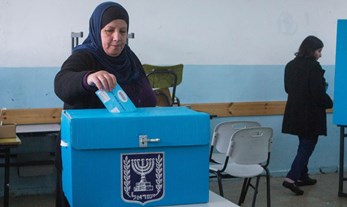
The 2018 Municipal Elections: “Mixed” but Unequal
Written By: Adv. Oded Ron, Dr. Nasreen Haddad Haj-Yahya
Comparitively low representation of Arab residents in the municipal government of “mixed” cities adversely affects their trust and sense of belonging as well as their affinity in the municipality.
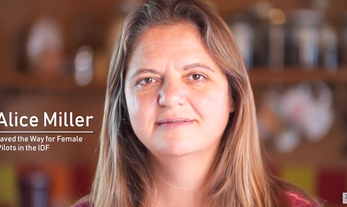
The Override Clause and Gender Equality in the IDF
Alice Miller describes how the High Court of Justice helped change women’s military service and improve gender equality in the IDF
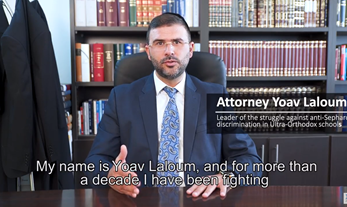
The Override Clause and Equality in Schools
Attorney Yoav Laloum relates how by petitioning the High Court of Justice he was able to stop ethnic separation in ultra-Orthodox educational institutions
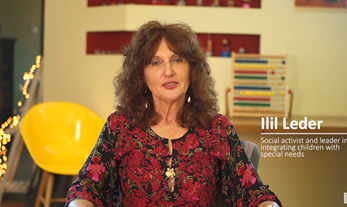
The Override Clause and Special Needs Children
Ilil Leder, relates how she was able to achieve equality in education for her daughter and all special needs children with the help of the High Court of Justice

Understanding How Bibi's 'Gift Affair' Might Have Happened
Written By: Jerusalem Post, Prof. Yuval Feldman
In an interview Prof. Yuval Feldman, discusses his new book "The Law of Good People" and sheds light on the connection between good people and corruption.
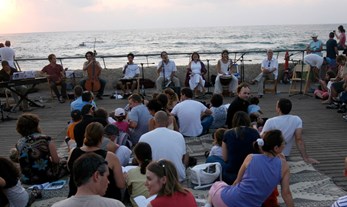
The Struggle Over the Definition of Jewishness Is Now Existential
Written By: Dr. Shuki Friedman
The centrality granted to the Jewish component over the democratic one in the constitutional identity of the state and the increasing influence of religion on the lives of Israelis make defining Judaism all the more important
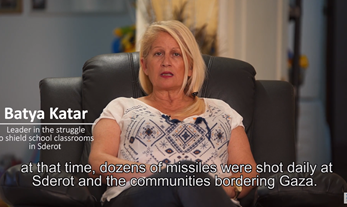
The Override Clause and Shielding School Classrooms
Batya Katar describes how she was able to make the state allocate the necessary budget to shield classrooms against rockets through the intervention of the High Court of Justice
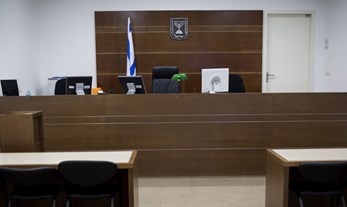
In Grand Debut, Israel's Nation-state Law Reveals Its Ugly True Colors
Written By: Prof. Mordechai Kremnitzer
The deputy president of the Jerusalem District Court inaugurated the Basic Law on Israel as the Nation-State of the Jewish People, issuing the first verdict based on it - imposing punitive damages on Hamas for the severe post-traumatic stress suffered by a Jewish Israeli wounded in a terror attack in Tel Aviv in 1998.

Why Did Israel Handcuff and Deport a French-American Law Professor?
Written By: Prof. Mordechai Kremnitzer
"How good it is that there are judges in Jerusalem, including the Magistrate’s Court, whose insight has not deserted them, despite the demands on them by the government to function as automatons in the service of brutality."
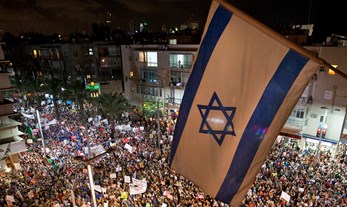
Jewish, Democratic—and Israeli
Written By: Yair Sheleg
We should simultaneously define Israel as the nation state of the Jewish people and at the same time---the state and home of all its citizens.
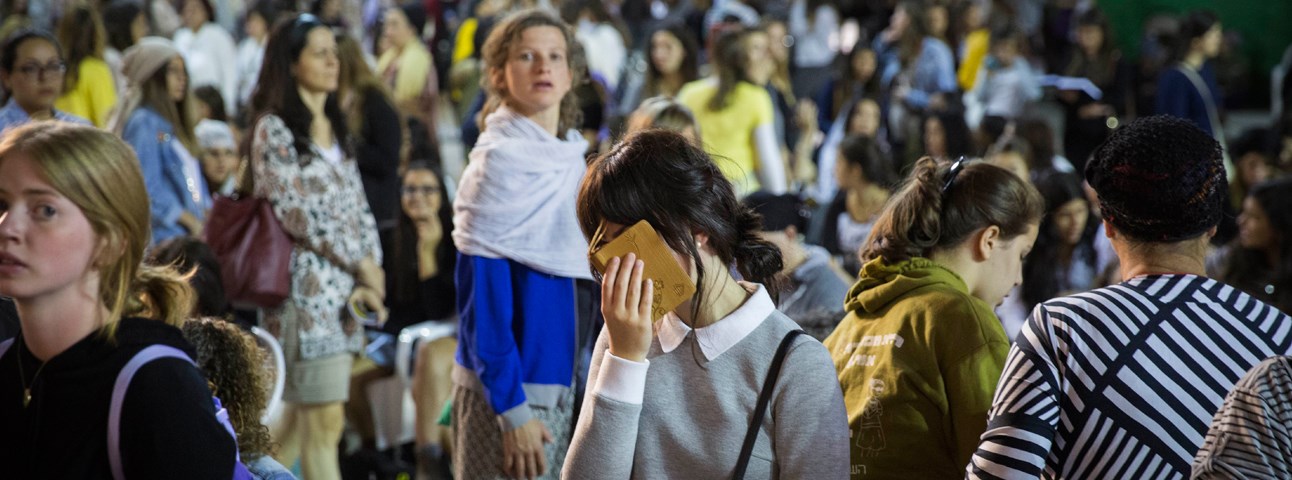
Are We Guilty? Are We Traitors?
Written By: Prof. Yedidia Z. Stern
Shared responsibility, engraved in Jewish tradition, is one of the secrets of the State of Israel's success and the use of the plural form in confession reflects this perception.

